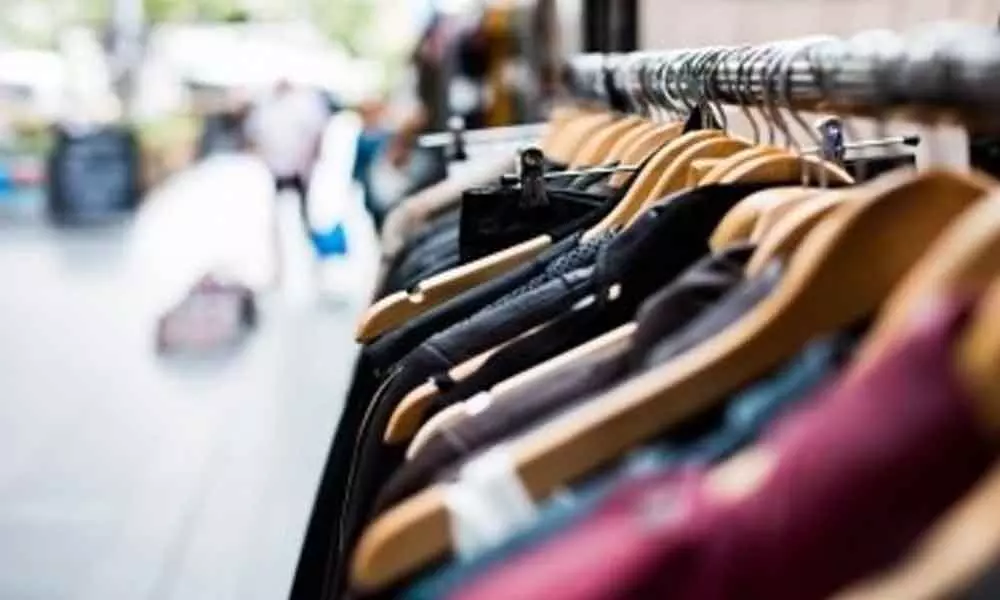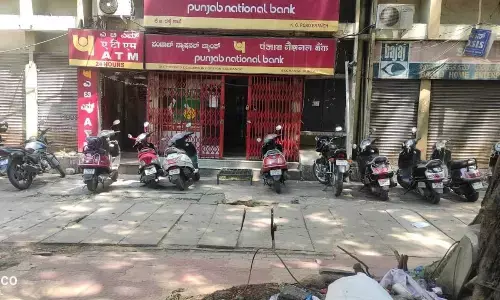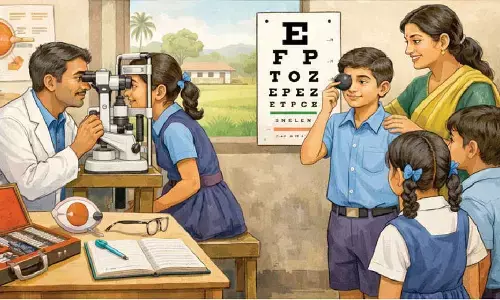Covid second wave to fray apparel retail growth, profitability

IANS File Photo
Temporary store closures, restricted mobility, and curtailed discretionary spending because of the second wave of Covid-19 infections are set to pull down revenue growth of the organised apparel retail sector to 15-20 per cent this fiscal, from an earlier expectation of 30-35 per cent, a report by CRISIL has said.
Mumbai: Temporary store closures, restricted mobility, and curtailed discretionary spending because of the second wave of Covid-19 infections are set to pull down revenue growth of the organised apparel retail sector to 15-20 per cent this fiscal, from an earlier expectation of 30-35 per cent, a report by CRISIL has said.
According to the ratings agency, the expectation of lower revenue growth this fiscal would be on a low base of last fiscal, which saw a decline of 35-40 per cent.
Slower recovery in revenue will mean the operating margin of apparel retailers will remain moderate at 4-5 per cent for this fiscal, compared with the earlier expectation of 7-8 per cent.
Retailers may have to take recourse to additional debt to plug near-term cash-flow mismatches, which could impact their credit quality. That said, CRISIL-rated apparel retailers are expected to be better placed due to strengthened balance sheets, supported by equity raise of Rs 2,000 crore made last fiscal.
This is based on an analysis of 60 Crisil-rated apparel retailers, which account for a third of the sector revenue. It assumes staggered easing of localised restrictions and reopening of stores, leading to demand recovery from the second quarter of this fiscal, as the impact of the second wave abates and the vaccination drive gathers pace.
Localised restrictions starting from the second half of April this year resulted in pan-India average retail mobility (footfalls to retail stores) falling sharply to 36 per cent of the pre-pandemic level in May compared with 77 per cent in February. Temporary store closures and constrained mobility have sharply impacted sales of apparel retailers in the first two months of this fiscal, though reopening from June is likely to ignite a gradual recovery.
Says Anuj Sethi, Senior Director, CRISIL Ratings, "Revenue this fiscal will only be 70-75 per cent of the pre- pandemic level (60 per cent in fiscal 2021). Moreover, unlike the first wave that had higher impact in Tier-1 cities, the second wave has spread in Tier-2 and 3 cities and rural areas as well, resulting in a similar impact on departmental and value fashion retailers."
Amid this sharp impact on offline sales, acceleration in online shopping has been a saving grace and bodes well for retailers with omni-channel presence. The share of e-retail sales will likely rise to 8-9 per cent this fiscal compared with the
pre-pandemic level of 4-5 per cent.
To clear inventory and attract footfalls, retailers may offer higher discounts, especially during the initial months of the reopening of stores, and this could impact profitability. However, renegotiation of rental arrangements and trimming of employee cost, which together account for 20 per cent of revenue, will help keep the operating margin at 4-5% this fiscal, a slight improvement over 3-4 per cent last fiscal, but much below the pre-pandemic level of 9 per cent.
Last fiscal, retailers strengthened their balance sheets through equity infusions of Rs 2,000 crore, which reduced overall debt for CRISIL-rated apparel retailers by 30 per cent.
Says Gautam Shahi, Director, CRISIL Ratings, "Having learnt their lessons from the first wave, apparel retailers are better prepared to manage working capital this fiscal. A gradual pace of store addition, coupled with retained proceeds of the equity raise made last fiscal, will help support liquidity. Supported by better performance, interest coverage3 ratio is likely to improve to 3-3.5 times this fiscal, from 2 times last fiscal, but remain below the pre-pandemic level of 5 times."
Nevertheless, some players with weak balance sheets and modest credit quality may require additional debt to plug cash-flow mismatches in the first half of this fiscal.
Going forward, the spread of infections, ability to renegotiate rentals, and rebound in discretionary demand will be the key monitorables.

















